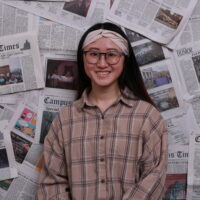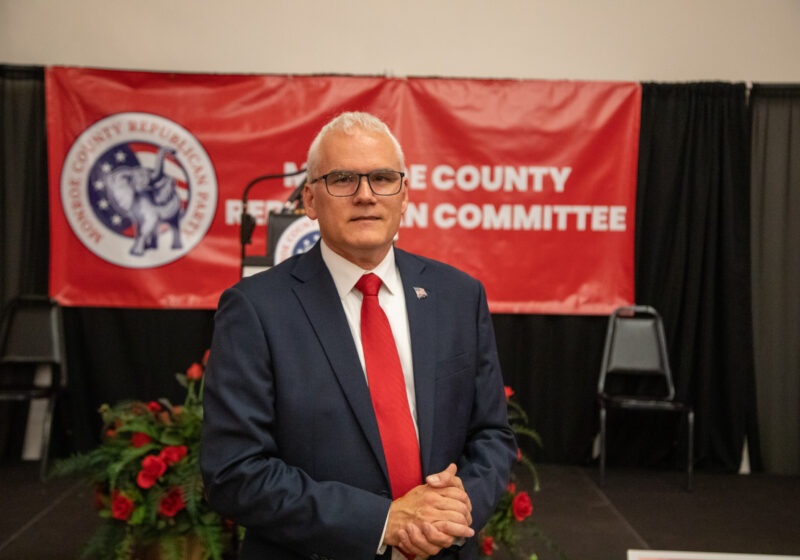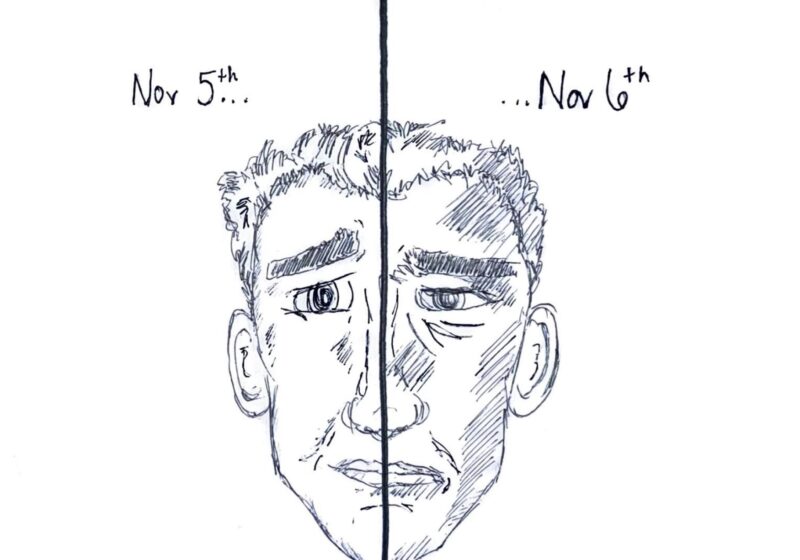Writing for the school paper wasn’t something I’d expect to become such a huge part of my life — especially not as an engineer. I set foot in the Campus Times office back as a first-year Opinions staff writer with little more than my two cents on the model minority myth, an uncanny boldness to release my thoughts into the Internet abyss, and a much-needed outlet from the hecticness of pre-med.
Channeling my thoughts in a weekly column soon transitioned into learning the ropes on hard reporting. As a journalist, I talked to people I never would have had a reason to approach other than sheer curiosity — for a hankering for a slice of life, for a story.
I met people, and with them I met the worlds they lived in. I talked to hip-hop dancers, student app developers, and drag queens. I learned about how efforts made in Brazilian Sign Language uplifted Black feminist movements in South America. I interviewed fellow youth musicians and educators who verbalized the struggle to pursue music in a cutthroat, ever-shifting world.
And in a profession that requires you to constantly listen and absorb the stories of others — I learned to speak for myself. In parallel with helping writers construct their arguments, I learned to construct arguments of my own: how to act thoughtfully, how to defend your decisions, and how to translate working arguments on an editorial level to defending against pushback. Large-scale politics are at the forefront of journalism, and so I gradually became familiar with how to accurately convey the University perspective on global conflicts and issues — something that became particularly pressing through my editorial decisions during our coverage of the Israel-Palestine conflict on campus. Just as the world has been thrust into the war in Gaza, college campuses have been swept along as well, and the University is no exception. The events of the past week put my experience to the test.
Last Wednesday, the CT ran a news piece on the ‘wanted’ posters displayed throughout campus that accused University affiliates of various offenses related to the Israel-Palestine conflict. Over the last week, these events caught the attention of national news as well. Our news piece received a mix of reactions, ranging from praise for reporting with integrity, to backlash from multiple groups, including concerns from University administration regarding the full inclusion of claims presented on the posters. We were chastised and urged to immediately remove the photographs of the posters and to issue an online correction acknowledging the unverified nature of the allegations.
First, to address the latter: I don’t know how we could have been any more clear. Multiple times in the piece do we state that the claims are alleged. The article states that “descriptions written are taken verbatim from posters.” The language used did not imply that the claims on the posters were true, nor that we verified or held opinions on any of the claims. We did our best to make clear that this was a news piece reporting on what had happened, assembled carefully with as much knowledge as we had at the time.
The editorial choice to include the full statements on the posters was not a decision made lightly. As the official student-run publication at the University, we have an obligation to shed light on campus events — to provide crucial insight that other outlets do not have the knowledge or means to do, to promote a holistic understanding given our position as direct witnesses to campus happenings. Other media outlets simply do not, and will not, have the full picture.
Take a cursory online search, and a flurry of media headlines pop up: “Hundreds of ‘wanted’ posters were plastered across the University of Rochester campus. Jewish faculty members were targeted,” a CNN headline reads. “Target Jewish staff,” “Jewish University of Rochester faculty and staff members targeted,” “wanted posters of Jewish faculty, staff” — amongst others.
These articles source public statements from administration and University officials and do not include the content of the posters at all. By the nature of their headlines, these outlets amplify the University’s denouncement of the posters as antisemitic — without providing the actual content in question.
We at the CT are not here to agree or disagree with the labeling of the posters as antisemitic. We as a paper have no desire to promote certain images of those accused to their detriment, nor do we aim to amplify the voices of the accusers. But the ways in which our reporting differed from other outlets — and have garnered much criticism for — stand.
The story stands as is because it gives urgently-needed clarity on what was a quickly escalating situation. The Campus Times reported with integrity, fairness, and without self-censorship — because students depend on us to speak the truth in its entirety. It is not our goal to defame anyone, or to cause any harm. The individuals depicted on the posters are public officials, and thus were treated as such. We simply reported on what happened.
The decision to include the content of the posters was made to equip readers with the full breadth of knowledge needed to come to their own conclusions. It was made clear that these claims were alleged, and the goal of the piece was not to conduct a longform investigation of them. Given the time-sensitivity of events, that would not have been possible nor practical for any newsroom, let alone an unpaid student newspaper entirely self-run on a volunteer basis. In an age where many readers preemptively make up their minds, where people believe what they want to believe, national news — without the full scope and cross-verification supplied by local or on-site reporting — wields a deeply destructive potential to misrepresent events to millions. And hence the student paper at any university exists as this sort of checks and balances. We are tasked with the daunting responsibility to amplify the voices that exist within our campus regardless of personal opinion, and to speak on what administration and other media will not or cannot say. That is what the CT did here and will always continue to do.
In the four years I’ve been here, the CT has changed. With each regime turnover, editors change. The types of people we represent on the front lines and embody in our staff change. The stories that live in the office conversations of our 15-hour marathon productions change. Yet despite all the moving parts, our cause remains steadfast — providing unbiased truth to the campus community we represent.
With humility, it has been an honor serving as your editor-in-chief. Signing off.






